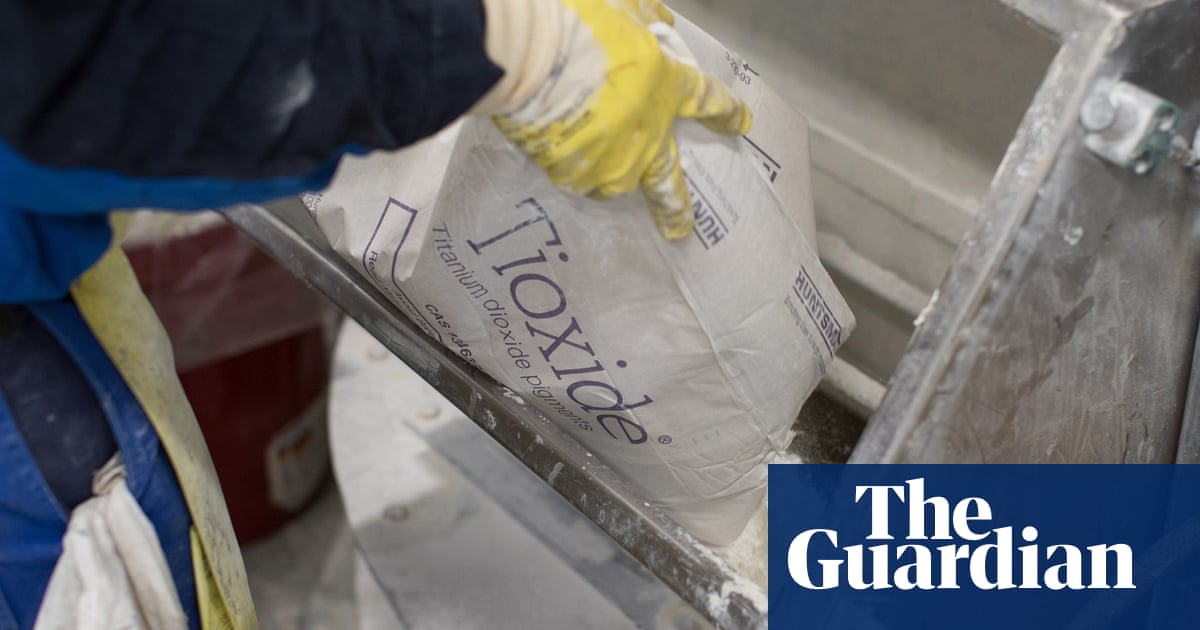The controversial food additive titanium dioxide likely has more toxic effects than previously thought, new peer-reviewedresearchshows, adding to growing evidence that unregulated nanoparticles used throughout thefoodsystem present an underestimated danger to consumers.
In nanoparticle form, titanium dioxide may throw off the body’s endocrine system by disrupting hormonal response to food and dysregulating blood sugar levels, which can lead to diabetes,obesityand otherhealthproblems, the study found.
Ultra-processed foods more broadly have this effect on “food hormones”, but there isn’t a full understanding of why, and the new research may help point to an answer.
“Our research highlights the detrimental effects of titanium dioxide nanoparticles as potential intestinal endocrine disruptors,” the authors wrote in the peer-reviewed study led by China’s Jiaxing Nanhu University.
Titanium dioxide in nanoparticle form is used in food to brighten whites or enhance colors, and may be in as many as 11,000 US products, especially candy and snack foods. Popular products like M&Ms, Beyond Meat plant-based chicken tenders and Chips Ahoy! cookies contain the substance. They’re also heavily used in nonstick ceramic pans.
The EU banned titanium dioxide for food use in 2022 because previous research has shown it to likely be a neurotoxin, be an immunotoxin, cause intestinal lesions and potentially damage genes. The particles can accumulate in organs and stay in the body for years. A 2022lawsuitdrew wide attention for alleging that Skittles are “unfit for human consumption” because they contain titanium dioxide.
On the heels of the study, Skittles announced it would stop using the substance, while the USFoodand Drug Administration (FDA) has maintained that it is safe.
The new research compared the gut health of three groups: mice that were fed titanium dioxide nanoparticles, mice that were fed larger microparticles and mice that were fed no titanium dioxide. Mice that were fed the nanoparticles showed lower levels of several types of gut hormones that signal to the body that it is full, aid in digestion and regulate glucose.
The mice that were fed the nanoparticles showed much higher levels of glucose, or blood sugar, than those that were fed microparticles. The authors also noted that “gut hormones secreted by enteroendocrine cells play a critical role regulating energy intake and maintaining glucose” levels. The titanium dioxide nanoparticles seemed to disrupt the enteroendocrine cells’ differentiation, which is part of the hormone secretion process, and reduce the cells’ numbers.
These issues can lead to obesity, type 2 diabetes and insulin resistance, the authors wrote.
The findings are “a really big deal because when you start messing with glucose levels – that’s diabetes”, said Tom Neltner, director of the non-profit Unleaded Kids, who, along with other public health groups, filed a formal petition with the FDA in 2023 that requested the agency ban the use of titanium dioxide in food.
The agency is legally compelled to respond within 180 days, but so far has ignored the petition, Neltner said. The petition comes as Robert F Kennedy Jr has made reducing toxic food additives a priority.
“He’s getting started so it’s too soon to tell, but there’s hope that we didn’t have before,” Neltner said. But he added that the groups will sue if the petition continues to be ignored.
